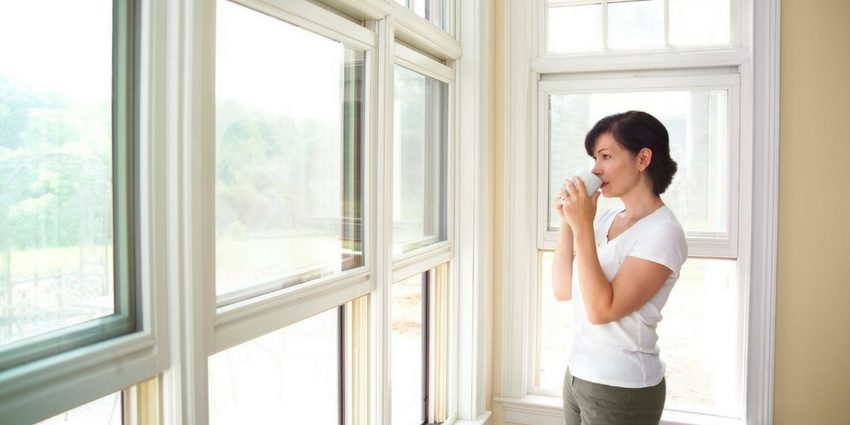Excitement About Window Replacement Parts
Wiki Article
Replacement Window Screens Things To Know Before You Buy
Table of ContentsNot known Details About Window Replacement Near Me How Window Replacement Estimate can Save You Time, Stress, and Money.The Basic Principles Of Window Replacement And Installation Window Replacement And Repair Things To Know Before You Buy
We like to see at least 10 years of experience in most cases.The decision-making process for selecting replacement windows divides into two tracks depending on whether historic windows remain in place or no historic windows survive. When historic windows exist, they should be repaired when possible. When they are too deteriorated to repair, selection of the replacement windows must be guided by Standard 6.

For example, the street-facing facade is likely to be more important than an obscured rear elevation. The more important the elevation, feature or space of which the window is a part, the more important the window is likely to be, and thus, the more critical that its replacement be a very accurate match.
The 4-Minute Rule for Window Replacement Near Me
This will affect the nature of an acceptable replacement. For example, windows at or near ground level present a different case from windows in the upper stories of a tall building. Using the hierarchy of a building’s features and taking into account the window’s visibility, some general guidance can be drawn.Replacement windows on the primary, street-facing or any highly visible elevations that are part of the base of high-rise buildings must match the historic windows in all their details and in material (wood for wood and metal for metal). The base may vary in the number of stories, but is generally defined by massing or architectural detailing.
Substitute materials can be considered to the extent that they do not compromise other important visual qualities. Replacement windows on secondary elevations that have limited visibility must match the historic windows in size, configuration and general characteristics, though finer details may not need to be duplicated and substitute materials may be considered Replacement windows whose interior components are a significant part of the interior historic finishes must have interior profiles and finishes that are compatible with the surrounding historic materials.
Replacement windows in buildings or parts of buildings that do not fit into any of the above categories must generally match the historic windows in all their pop over to these guys details and in material (wood for wood and metal for metal). Variations in the details and the use of substitute materials can be considered in individual cases where these differences result in only minimal change to the appearance of the window and in no change to the historic character of the overall building.
Window Replacement And Installation Things To Know Before You Buy
Dimensions, profiles, finish, and placement are all perceived in relative terms. For example, an eighth of an inch variation in the size window and door replacement of an element that measures a few inches across may be imperceptible, yet it could be more noticeable on the appearance of an element that is only half an inch in size.Thus, while comparable drawings are the typical basis for evaluating a replacement window, a three-dimensional sample or mock-up provides the most definitive test of an effective visual match. The way a historic window operates is an important factor in its design and appearance. A replacement window, however, need not operate in the same manner as the historic window or need not operate at all as long as the change in operation does not change the form and appearance of the window to the point that it does not match the historic window or otherwise impair the appearance and character of the building.

Though a blind stop is a small element of the overall window assembly, it is a noticeable part of the frame profile and it is an important part of the transition between wall and glass. Steel windows that were installed as a building’s walls were constructed have so little of their outer frame exposed that any replacement window will necessitate some addition to this dimension, but it must be minimal (replacement window screens).
A Biased View of Window Replacement Service
For example with a look at this now wood window, this would include the rails, stiles and muntins; with a steel window, this would include the operator frame and muntins. The depth of the sash in a double-hung window, or its thickness, affects the depth of the offset at the meeting rail of a hung window.Because of its small size, even slight differences in the dimension of a muntin will have a noticeable effect on the overall character of a window (Window Replacement). Shape, as well as depth, is important to the visual effect of a muntin. The stiles of double-hung historic windows align vertically and are the same width at the upper and lower sashes.
The shadow lines the muntins create add another important layer to the three-dimensional appearance of the window. While it may be theoretically possible to match all the significant characteristics of a historic window in a substitute material, in actuality, finish, profiles, dimensions and details are all affected by a change in material.
Because these characteristics are often diminished for old glass, new glass equivalent to the original should be the basis for evaluating the glazing proposed for new windows. Color should only be a noticeable characteristic of the new glass where it was historically, and any coating added must not perceptibly increase the reflectivity of the glass.
Report this wiki page